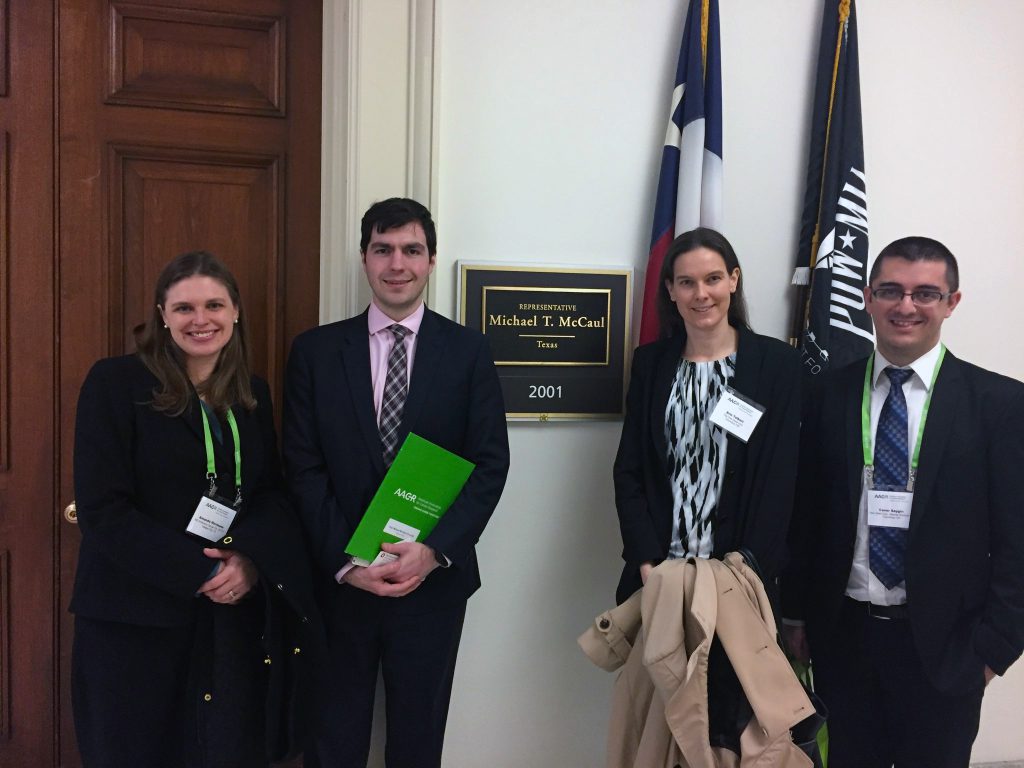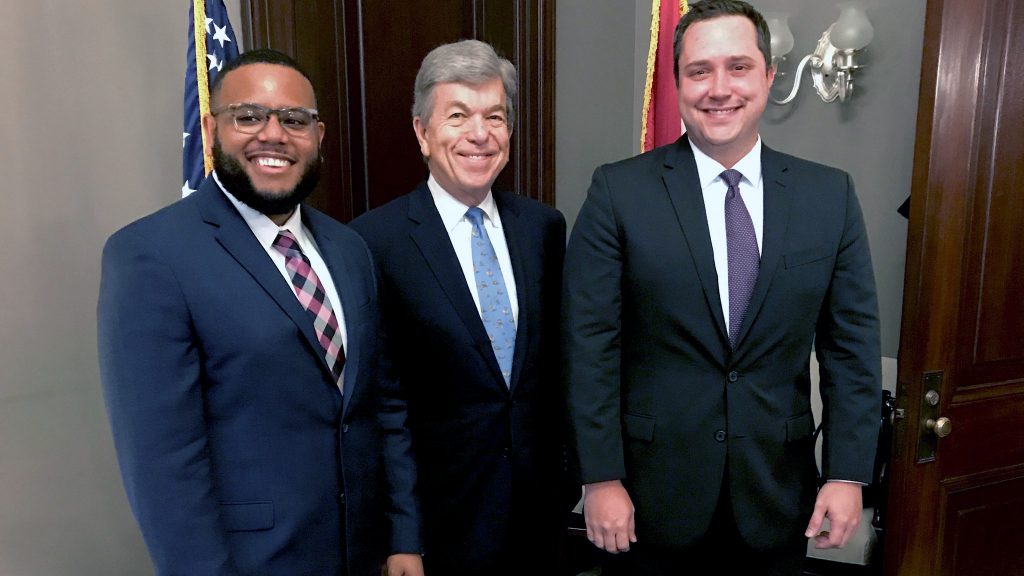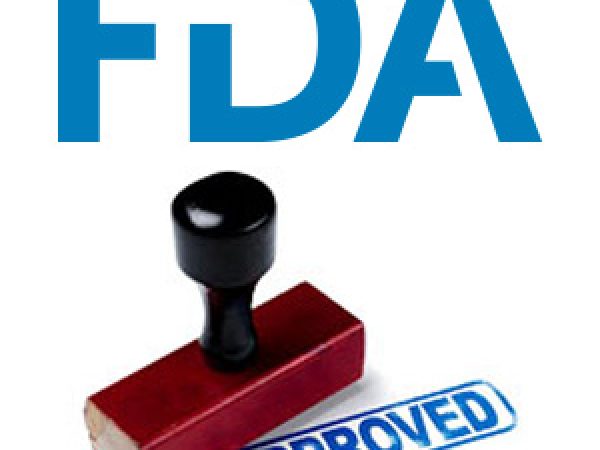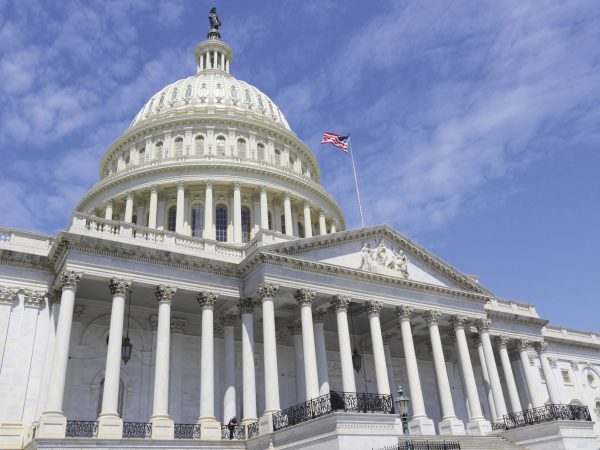Early-career Researchers Share Their Passions on Capitol Hill
Each year, the American Association for Cancer Research (AACR) is proud to bring Associate Members to Washington, D.C., where they meet with legislators and policymakers to discuss issues that are critical to supporting medical research. This is the third year that the AACR Associate Member Council and the Office of Science Policy and Government Affairs have organized the Early-career Hill Day. Two AACR Associate Members who participated in this year’s Hill Day shared their experience; we appreciate their firsthand accounts of their day on Capitol Hill!
Amanda Herrmann, PhD
Graduate Research Assistant
Stem Cell Transplant and Cellular Therapy
MD Anderson Cancer Center
Houston, Texas
“If you’re not at the table, you’re on the menu.”
Advocacy has been a hobby of mine for several years now. As an early-career clinician scientist, I have been privileged with several opportunities to travel to Washington, D.C. to share my story with those on Capitol Hill. I look forward to each visit as both an opportunity to share the exciting advances I am making in my research and clinical practice, and as a chance to help organizations such as the AACR further their mission and return the support I receive from them throughout the year.

Amanda Herrmann, left, with Thomas Rice, a staffer for Rep. Michael McCaul, and fellow AACR Associate Members Erin Talbert and Caner Saygin, who also participated in Hill Day.
Advocacy has broadened my network in ways I could have never imagined, and has introduced me to the intricate workings of the federal government funding process. It amazes me how many scientists I interact with back home in the research lab who complain about the federal funding of science, but never make the effort to understand how this process works, or at the very least voice their concerns to those with the power to change it.
Medical research is a relatively uncontroversial issue with great public and bipartisan support. The National Institutes of Health (NIH) has been fortunate to receive acceptable increases in funding over the past few years, but ensuring that these gradual increases continue takes persistence on the part of scientific advocates. As a colleague noted this week, “if you don’t tell them what you want, they (Congress) assume everything is fine as it is.”
The staff I met on the Hill were all genuinely interested in our stories and how NIH funding directly impacts the early-career researcher. It’s our job as junior scientists to not only safeguard the future of our profession but also work to leave it better than we found it. If that means traveling to Washington, D.C., several times a year and explaining to my representatives how the decisions they make on policy directly affect me, my career as a scientist, and my patients, then I will gladly take the time. It’s a worthy, necessary, and fun endeavor, and I hope to continue this work for many years to come.
Marvin E Langston, PhD, MPH
Postdoctoral Research Scholar
Division of Public Health Sciences
Washington University in Saint Louis School of Medicine
St. Louis, Missouri
Most folks can vividly remember when cancer first impacted their life. My cancer story started when I was in 8th grade. My favorite maternal aunt, a young and vibrant 40-year-old with so much life yet to live, passed away from a particularly aggressive form of recurrent breast cancer. As a kid, the loss of Aunt Vivian was devastating. Unfortunately, my story is not unique. Families all across this nation are dealing with the aftermath of a cancer diagnosis while searching for answers to the questions of why and how this disease chose them, and what to do next.
My response is simply a variation first shared with me by my very special Aunt Vivian before her death: “Baby, there’s always hope!”

Marvin E. Langston, left, with Senator Roy Blunt and fellow Hill Day participant Shane Stecklein, who is a member of the AACR Associate Member Council.
Hope that tomorrow we can find the next prevention strategy, early detection tool, or treatment that will impact the lives of many Americans. Hope that we can train the next generation of cancer researchers to bring together diverse voices, innovative ideas, and multidisciplinary approaches to fuel the next big cancer discovery. This is why I’m inspired to do my work in cancer prevention, why the NIH continues to fund great science, and why the United States continues to lead the world in breakthroughs for cancer research.
Attending the AACR’s Early Investigator Hill Day helped reaffirm for me that only by working together, across party lines and political affiliation, will we effectively combat cancer. In my visit to Capitol Hill, I was able to share my cancer-related research and personal family experience. I was inspired by the support of many champions for cancer research in Congress, most of whom shared personal stories, either as cancer survivors themselves or as family members of those with cancer. During these conversations, our message was clear. Provision of robust, sustained, and predictable research funding for NIH will give us the tools to better prevent and treat cancer.
Thus, we urge all to contact members of Congress and indicate your support for a $2 billion yearly increase for the NIH. As a researcher and advocate, I know that these funds will lead to new cancer research discoveries and continue to deliver hope to families all across the country dealing with this disease.



